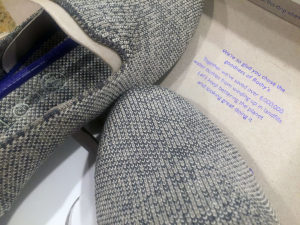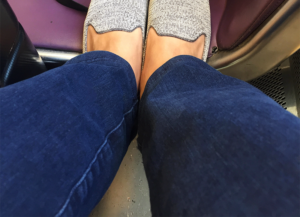 Sharon owns two condos that are worth $1.4M and has a cash cushion of $120,000 plus a $50,000 emergency fund. She’d like to move into a small house while keeping her cash cushion intact. Should she take out a home equity loan on her mortgage to essentially pay for her house in cash, or get a traditional mortgage and use her savings towards the downpayment?
Sharon owns two condos that are worth $1.4M and has a cash cushion of $120,000 plus a $50,000 emergency fund. She’d like to move into a small house while keeping her cash cushion intact. Should she take out a home equity loan on her mortgage to essentially pay for her house in cash, or get a traditional mortgage and use her savings towards the downpayment?
Jury and her partner are torn between two options: buying a condo, which would allow them to live off of one salary and invest the other, or buy a more expensive house – a much more attractive lifestyle option. Which should they purchase?
Daine’s IRA balance is a result of 401k rollovers. He’s concerned that his lack of monthly contributions cause him to miss out on compound interest. What can he do to grow his retirement funds?
Molly and her husband want to reach financial independence (FI) in 15 years, at age 50. They’re unsure of whether their rental property income will sustain their FI lifestyle. How can they plan for this?
I answer these questions in today’s episode. Enjoy!
Daine asks (at 2:00 minutes):
The balance of my IRA is around $140,000, and most of the money inside is a result of the 401k rollovers I’ve done each time I’ve switched jobs.
I don’t contribute to my IRA each month, and I’m concerned that I’m losing out on compound interest.
I also have a savings account with $90,000. What options do I have to grow my retirement funds?
Molly asks (at 16:34 minutes):
My husband and I are 35 years old. We’d like to reach financial independence (FI) by 50 years old. If possible, we’d like to reach it sooner through a combination of rental property income and traditional retirement funds. We’re not sure if it’s possible.
Here are our numbers: we have $280,000 in retirement accounts. I max out my Roth and we both contribute to an HSA. We plan to continue to max out our accounts over the next few years.
We also have two rental properties, both of which rent at $1,100 per month. Each property has an $88,000 balance on a 30-year fixed loan with a 3-4 percent interest rate.
Our primary residence has a balance of $250,000 on a 15-year fixed mortgage. However, once we hit FI, we plan to move and rent until we know where we want to settle down.
We plan to pay the rentals off by age 50 (or sooner). We don’t necessarily want to draw down on our retirement accounts; we’d rather draw on the rental income. How can we determine if these assets will get us to FI?
Jury asks (at 26:22 minutes):
My partner and I want to buy our first home. We’re in a great position to buy as we have a large downpayment and plenty of emergency savings. We’re also debt-free. The problem is, we’re not sure if we want to buy a condo or house.
Buying a condo results in a four-minute drive to my job. The mortgage payments are so affordable that we could invest one salary and live off the other salary. I know this sounds like a no-brainer, but I’m not sure if I’d enjoy living in a condo. I’m a pretty loud person, and I don’t like noise. I also have a large dog that weighs over the normal limits condos have. I’m also worried about how much condo fees would increase every year, and I don’t want to deal with special assessments. On top of this, the condo market in Calgary is crashing, so I might lose money if I move in five years.
Buying a house results in a 10-15 minute drive from my job. The mortgage payments are doable, but can’t live off of one salary in this situation. However, I’m hoping that the equity we have in the house would balance that out. I plan to stay in this house for 10-15 years, as long as life doesn’t get in the way.
Given all of this information, should I buy the condo, or buy the house? How can I think through this?
Sharon asks (at 38:24 minutes):
I’m 48 years old and I became an accidental landlord two years ago. I’m completely debt-free. I have a $50,000 emergency fund in a savings account, and another cash savings account with a $120,000 balance. I have $6,000 in a Roth IRA which is in VTSAX.
I work 20 hours per week at a prestigious hospital in Manhattan. My annual gross income from this job is $80,000. I have two additional income streams – a per diem position at the hospital (which hasn’t started yet due to the pandemic), and a private practice that I opened in April, which I plan to grow over the next few years.
I own two condos in Westchester County, and together they’re worth $1.4M. I live in one condo and rent out the other. My annual gross rental income is $63,000. In total, my annual gross income is around $140,000.
I’ve lived in an apartment my entire life and I’m tired of not having any freedom with my residence. I want peace and quiet and privacy, and so I want to buy a house with land. However, I’m not handy, I’ve never had a mortgage, and the entire process seems overwhelming. I’m also not keen on acquiring more debt.
Once I move, I could rent out the condo I live in, increasing my annual gross income to $210,000. What is the most conservative way to buy a little house? I’d like to keep my $120,000 cash cushion for peace of mind.
Is it possible to get a home equity loan on one of my condos and pay for my residence in cash? I read that I can possibly get up to 85 percent of the value of the property, which is around $595,000. The house I’d like to buy would be around $500,000 – $600,000.
Or, should I try for a traditional mortgage, and be forced into using my cash cushion as a downpayment? I’m concerned that my credit score won’t yield a great interest rate on a mortgage, so I’m wondering if a home equity loan makes more sense than a traditional mortgage. Is it wrong to think that I can keep my cash savings and use the money from the home equity loan to pay for everything house-related in cash?
Resources Mentioned:
- Fidelity retirement calculator
- Financial Mentor calculators
- Ask Paula – The Early Retirement Episode
- affordanything.com/extraincome
Thanks to our sponsors!
Blinkist
Busy, but love to read and learn? Blinkist is the only app that takes the best key takeaways from thousands of nonfiction books and condenses them down into just 15 minutes. You can start a free 7-day trial when you join at blinkist.com/paula.
Native
Native creates safe, simple, effective products with trusted ingredients and performance. Their deodorant doesn’t have aluminum and comes in a wide variety of scents. They also have bar soap, body wash, toothpaste, and plastic-free deodorant. Go to nativedeo.com/paula for 20% off!
 Rothy’s
Rothy’s
Rothy’s shoes are stylish, sustainable, and comfortable for everyday wear, anywhere. They come in numerous styles, their lineup is updated often, and their flats, shoes, and bags are made from recycled plastic water bottles! Rothy’s offers free shipping + free returns and exchanges. Go to rothys.com/paula.

My Betabrand pants are comfortable for travel days!
Betabrand
Most of us find ourselves in situations where we need to wear dress pants, whether it be for work, a conference, or a meeting. If only you could wear comfortable pants to everything, right? Well…now you can! Betabrand offers dress pant yoga pants, and they’re as awesome as they sound. Check out betabrand.com/paula and get 25% off one pair.